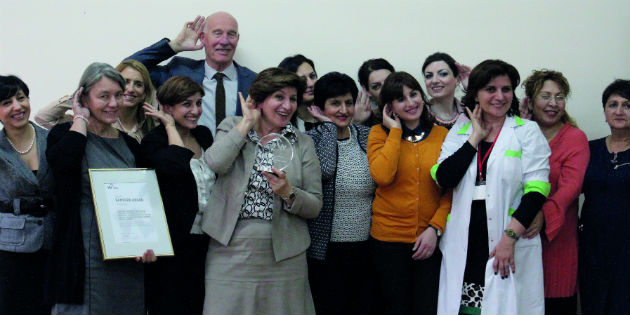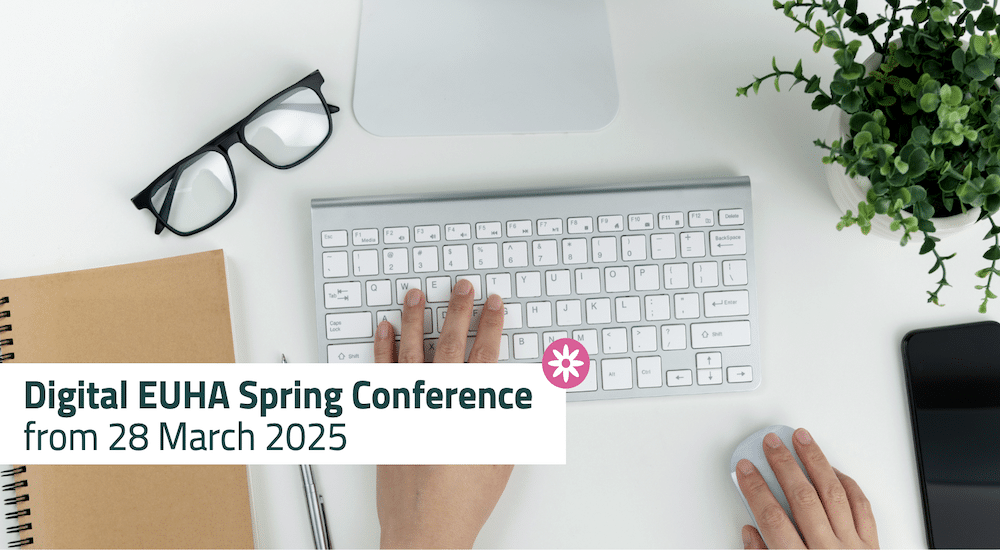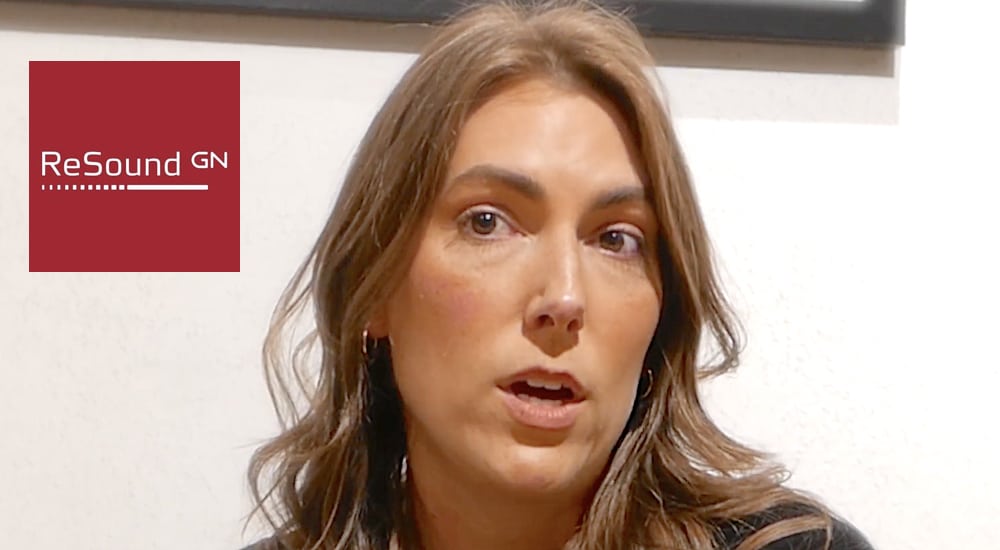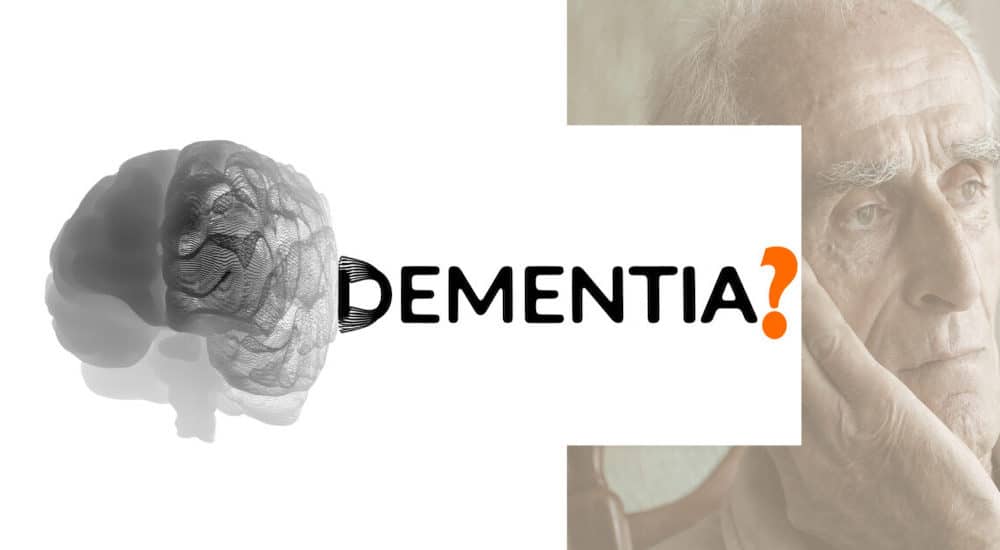Hear the World Foundation’s project in Yerevan
The Hear the World Foundation currently has 23 projects worldwide to promote its vision of a world where everyone has the benefit of good hearing. In late October 2015, a group joined the head of the Hear the World Foundation, Elena Torresani, and advisor Prof. John Bamford, to visit the project at the Arabkir Medical Center in Armenia. In their luggage, they brought an award, some equipment, and something special. A whistle-stop visit to the Caucasus.

Zürich Children’s Hospital has had an official partnership with Arabkir Medical Center in Yerevan, Armenia since 2005. The Swiss hospital’s involvement goes back to 1988 when part of the mountainous country, which has about 3 million inhabitants, was hit by a major earthquake. The quake left more than 25,000 people dead. It was the first time that the former Soviet Union authorized help from foreign countries, because the country was so badly affected. Among the outside relief organizations was Zürich Children’s Hospital, part of Zürich University. Over the years, “a good working relationship developed and then expanded into other areas,” says Dorothe Veraguth, Head Audiology Physician at the University Hospital and Children’s Hospital in Zürich.
Then in 1996, the Audiology Department from Zürich, represented by the couple Christian and Heidi Heldstab, went to Yerevan for the first time and helped to fit hearing aids and share knowledge with the local staff. The profession of hearing aid acoustician is currently not recognized in Armenia. The ongoing commitment then became an official partnership in 2005. The Swiss team now no longer only provides assistance. They also began to train a new generation of young Armenians as specialists. Sometimes groups would travel to Yerevan from Switzerland, and other times specific staff members who knew English well enough would be invited to Zürich for so-called Teaching Weeks. “Many of the colleagues here have been to Zürich,” says Dorothe Veraguth during the visit to Arabkir Medical Center in October. This was how friendships developed between the Swiss and Armenian staff.
Knowledge transfer from Zürich to Yerevan
The idea was that the people trained through Zürich would ideally not only improve their own work but also pass knowledge on locally, so that the partnership could help to develop greater numbers of local specialists. Arabkir Medical Center proved to be just right with this in mind, says Dorothe Veraguth. Both the Hospital Director and Tamara Manukyan, Head of Audiology, have “created an environment here where people want to stay and pass on their knowledge to locals,” she adds.
This also prompted Dorothe Veraguth to initiate an application for support from the Hear the World Foundation in 2010. “We realized that it would be great to upgrade part of the technical equipment, to bring it in line with Zürich,” she explains. This meant that the Armenian staff would have the same equipment locally that they used for training in Zürich. This made it possible to “provide qualitatively good hearing aids and to facilitate education for children with FM systems,” she says.
Application for support from the Hear the World Foundation
In the projects of the Hear the World Foundation, foreign specialists are often involved, explains Elena Torresani in Yerevan in view of the bilateral collaboration between Switzerland and Armenia. As a result, she says “each project is a little different from the very start.” Torresani is head of the Hear the World Initiative at Sonova in Stäfa, near Zürich.
The Hear the World Foundation received about 120 applications last year. “These are all initiative applications,” she explains. They are all assessed and some are short-listed by the Advisory Board of the Foundation. Of these, 35 projects are then invited to submit a full application, which is again evaluated by the board. The board at the Hear the World Foundation is made up of five people from various countries to ensure an international approach, says Elena Torresani. This is important for a foundation operating internationally.
The number of applications that can be considered in the end is different each year. Sometimes, several smaller projects are selected to run in parallel, but other times a few large projects are retained. The Hear the World Foundation is currently supporting 23 projects worldwide. “Each year we do have to decline projects that we in fact found very good,” Torresani says. “We can’t do it all; there aren’t enough resources for that.”
The application by the Children’s Hospital in Zürich for its collaboration with the Arabkir Medical Center was one of the submissions that convinced the foundation’s board in 2010. A one-year commitment to Yerevan was decided but the project has been extended three times. In 2014, it was even agreed to guarantee the project for a further five years. “Our commitment here in Yerevan consists of financial contributions for audiology equipment as well as hearing aid and battery donations,” says Elena Torresani. “There are also the training components that we offer as needed.” In addition, some local schools are supported by the project with FM systems. “We want to achieve as much as possible with our contribution,” says Torresani. “In the end, our aim is that children in need receive hearing aids. A fundamental notion for the choice and implementation of projects is the principle of sustainability. As a result, the foundation gives priority to projects that will have a positive effect long-term. Therefore, the quality of hearing rehabilitation is an absolute priority. So we invest a lot in equipment and training locally, to build up know-how,” says Torresani. To provide batteries for hearing aids free of charge, the foundation has a partnership with Varta microbattery. The children we help locally don’t need to pay for their hearing aids or for fitting. In return, a project supported by the Hear the World Foundation must provide a kind of statement of activities twice a year that indicates what exactly happened and what the funding was used for. “We also visit projects like this one in Armenia in order to see whether everything is going well,” she adds. Everything is indeed going well in Yerevan, very well even.
The John Bamford Award
Twice a year, the Hear the World Foundation recognizes the work of one of the projects it supports with an award. The first is named after the Canadian board advisor Prof. Richard Seewald, and the other after the British advisor Prof. John Bamford. And the John Bamford Award this year went to the Armenia project. To give the award to Tamara Manukyan and Dr. Dorothe Veraguth in person, John Bamford travelled to Yerevan from Manchester in late October 2015.
“It is important to overcome barriers that one faces when one has hearing loss,” says Prof. Bamford, chair of Audiology and Deaf Education at the University of Manchester. Those who work on the project were invited to the award ceremony and three young girls who were given help through the project put on a show for the audience. A representative of the Armenian Ministry of Health also attended. “Through their work, they know how important it is to identify hearing loss in children as early as possible in order to provide support to them and their families,” adds Professor Bamford. “This is the only way for children to develop and shape their lives like everyone else, without being disadvantaged.”
It all began with an audiometer
In her speech, Tamara Manukyan looked back on what her team has achieved here in Yerevan thanks to international support. About 500 children have been given help, she tells the audience. Special thanks go to the Hear the World Foundation. “We’re not just happy about this partnership, we’re also very proud of it. Through our work together, we can do far more than before,” she says. The scope of activities has now been widened and centers have been set up in five regions of Armenia where hearing screening now takes place. For the population in this still poor country – in 2004 annual income per capita was just USD 790 – it is a great benefit not to need to travel to the capital anymore.
If the screening shows anything abnormal, appropriate help can now be provided to the children thanks to the partnership with the Hear the World Foundation. “The three girls we just saw have no problem speaking thanks to this care. This would otherwise not have been possible,” says Tamara Manukyan.
Manukyan has worked as an audiologist for 40 years. She joined the team at the Arabkir Medical Center in 1988. “It all started with an audiometer; that was the only equipment we had,” she says. “But we had experience in working with children and we had speech therapists who did great work.” She called on several NGOs for help. The team then worked with an American foundation that provided the Audiology Department at Arabkir with the necessary equipment needed for speech therapy. As the number of children needing help continued to rise, she looked to other foundations. The work carried out by Tamara Manukyan and her team became increasingly important for the city and the country. Soon, the government became involved and started to pay salaries to the staff so that they could continue their work.Manukyan and her team were then in high demand. They founded a rehabilitation center, associated with Arabkir and continued to develop. Today, the center has speech therapists, psychologists, and audiologists, to help and provide care for children aged six months to 12 years.
Cooperation with Audiology at the University of Zürich Children’s Hospital began in 2007. “This was so helpful for us,” says Tamara Manukyan. Through the partnership, Manukyan‘s colleagues were trained in fitting hearing aids. And more speech therapists were trained. “In this area, Armenia no longer has a lack of professionals,” she adds.
With the help of the Hear the World Foundation, Manukyan and her staff are now addressing newborn hearing screening. “To do this, we have integrated a large number of hospitals in the project,” she says. “And thanks to this support, our children now have no problem going to school and participating in the community.”
A new piano for music therapy
In the run-up to the project visit, the team of Phonak Vice-President Martin Grieder enquired what else could be done to benefit the project at Arabkir Medical Center. “Our actual focus is that the Hear the World Foundation provides many Phonak hearing devices to children in need,” says Grieder. “But my team wanted to do something more.” The team thus found out that a new piano was urgently needed for music therapy. Therefore, at Sonova headquarters and in Fellbach at Phonak Germany, a baking fund raiser was organized. With the money that was collected, the team could buy a new piano for Yerevan.
Now Martin Grieder is in the room at Arabkir Medical Center where music therapy takes places and is enjoying a performance by a group of children. He finds the moment really moving. “We were told that the little girl in the red dress who danced for us earlier practically couldn’t hear or speak when she originally came here,” he says. “It’s very moving to see how the work done at the center has contributed to her being able to develop.” For Martin Grieder it’s great that “it’s not only about business”. “We can contribute something that really makes a difference. That is really encouraging and gratifying.”
Not knowing what to expect
“It is fascinating to see how work is done in poorer countries,” says Nazan Yakar. In 2014 she completed her Bachelor’s in Hearing at Lübeck University. For a year and a half she has worked for Phonak in Fellbach in customer support. Along with Christiane Schubert, who also obtained her Bachelor’s in Lübeck and who works for Phonak in product management and pediatric audiology, Nazan Yakar went to Yerevan as a so-called volunteer as part of the project visit. For both of them, this was their first mission for the foundation.
“I find it all very exciting,” says Christiane Schubert. “You don’t know what to expect.” The pair stayed in Yerevan for a full week and along with their colleagues carried out aftercare appointments and hearing screening. They were able to pass on their knowledge over this time. It doesn’t matter that things work differently compared to Germany. “Things are a lot more turbulent here,” says Christiane Schubert. “At home, parents and children have an exact appointment to attend. Here, it seems like everyone arrives all at once, even though appointments were made.” Arabkir is very well organized for this, according to the volunteers. They also found that the staff are very knowledgeable. “They are already very experienced”, she adds.
Aside from their know-how, both Nazan Yakar and Christiane Schubert brought along a range of new Sky-devices for children and five Roger systems each, and all sorts of toys for play audiometry. Both found after a few days that they were nonetheless lacking a repair station. “This way we could change casing in a few minutes or repair small components, without sending the device for repair to the Russian Phonak branch,” says Nazan Yakar.
Both volunteers had several moving moments during their contacts with the Armenian children and their families during testing and fitting. “One young boy’s grandmother was great,” says Nazan Yakar. “The way she made an effort to thank us in English was so sweet.”They do not want to lose touch with the Armenian team once back in Germany. “Of course I will do my best to support those who come to Germany,” says Christiane Schubert. She would also like to initiate installation of a repair station. Nazan Yakar in turn even imagines welcoming her Armenian colleagues for a training session in Fellbach. “Or we could arrange a visit to a hearing aid specialist on our side,” she says.
Both would be sustainable and in line with the Hear the World Foundation. Until the project reaches its term in three years, there is still time to do more. And who knows? Maybe the project will be renewed again. Tamara Manukyan would be very pleased if the project could continue, in whatever form. “Whatever they offer us“, she says, “we’ll be happy to join in.”


